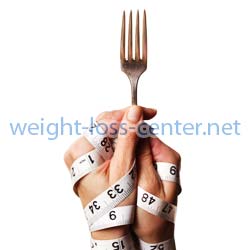Weight loss is a tricky task to accomplish. The old ways of apple cider vinegar and cabbage soup fad diets have been exposed as dangerous and unreliable, so alternative methods of weight loss are now being sought by seemingly everyone! Weight loss doesn’t have to be this big green monster that leads us on with great weight loss in the beginning and then leaves us standing on a weight loss plateau for sometimes weeks at a time with no weight loss.

The key to improving weight loss is with scheduled meals that the body can rely upon to get the nutrients it needs.
No, weight loss isn’t a monster—there is logic to losing weight at a steady and safe rate. The key to effectively dropping the pounds and keeping them off is to understand how the body treats the food that we eat and how we can manipulate this system into giving us the results we want. The real trick to fighting away the fat is to simply stick to a meal schedule and to make healthier choices in the foods we eat.
The most common mistake that people make when trying to lose weight is to believe that starvation or skipping meals will provide them with the results they are looking for. You don’t need me to tell you that starvation diets are not only ineffective for losing weight and keeping it off, but they are also extremely dangerous. With this said, skipping meals is not an agreeable alternative to starvation. Let’s have a look at why this is…
The human body is, in some ways, a creature of routine. Say Jane usually eats breakfast around 7am, lunch at noon, and dinner at six o’clock. She decides she needs to lose some weight fast, so she starts cutting out lunch. As far as Jane’s mind is concerned, she has made a conscious effort to do without this meal, but her body is kicking up a storm of protest. The next week, Jane decides to skip breakfast instead of lunch because she misses going out to lunch with co-workers. Now Jane’s body is not only continuing to miss a meal, but it’s confused as to why this happened and whether it will continue to happen. Eventually, Jane’s body will start taking control of the situation because as far as it’s concerned, there are elements preventing it from getting all of the daily nutrients it needs. This usually occurs in the form of hording excessive stores of fat in preparation for a “rainy day”.
The body will pull these fats from every piece of food that it can—especially those indulgences of not-so-healthy snacks, because these fats are the easiest to store away. So every time Jane eats a dessert or snacks on a pack of potato chips while still skipping meals, her body will continue to store away fat. As you can imagine, this is counterproductive to Jane’s efforts to lose weight by skipping a meal. Yes, the body will pull energy from the fat stores when it really needs to, but it will do so much more slowly compared to the rate that it stores the fat. At best, Jane will lose two or three pounds or stay the same weight. At worst, she will actually gain weight, especially if the only two daily meals she eats are unhealthy.
Scheduling meals is really the best way to ensure that our bodies don’t pull a “Jane” and start storing fat when we don’t want it to. If one can provide their body with a reliable schedule of fulfilling meals, there should be no cause for the body to store excessive fat deposits in preparation for a rainy day.
It’s also a good idea to consider making up a specific schedule of meal times that can easily be maintained throughout one’s day-to-day routine so that there is never a cause to skip a meal. The best way to go about this is to start by determining how long it usually takes you to prepare a healthy meal. Your schedule will need to compensate for meal prep time as well as to give yourself adequate time to eat. Many people find that preparing meals in advance allows more flexibility in their meal schedule but also makes measuring portions a much simpler process. If you have a particularly busy schedule or find it hard to resist snacking, then you may want to consider breaking up your meals into six smaller meals throughout the day rather than three large meals.
Skipping meals simply isn’t the answer to weight loss. It tricks the body into starvation mode which will have the opposite effect of safe weight loss. The key to improving weight loss is with scheduled meals that the body can rely upon to get the nutrients it needs.
Other Related Posts and Articles you May Find Interesting: “Tips for Planning Your Weekly Meals”, “Daily Meal Planning” and “10 Bad Habits that Cause Weight Gain”.





I totally agree that skipping meals is one of the worst things you can do for weight loss. Infact, instead of eating 3 larger meals per day it is better to eat 5-6 smaller meals per day. This way you never allow yourself to get hungry. When you skip a meal, you often get so hungry after that you way over-eat at the next meal. Then you feel tired and sluggish and have consumed more calories then you would have if you had two smaller meals. I know a lot of people like to skip breakfast. This is the wost meal to skip! Breakfast is the most important meal of the day. A good breakfast provides the nutrients that people need to start their day off right. Also studies show that children who eat a good breakfast do better in school than children who do not. I am not saying eat a big breakfast every day with bacon and eggs, but eat a healthy breakfast that consists of milk, fruits, and cereal. It’s a fact that people who eat a healthy breakfast are less likely to be overweight then people who skip breakfast.